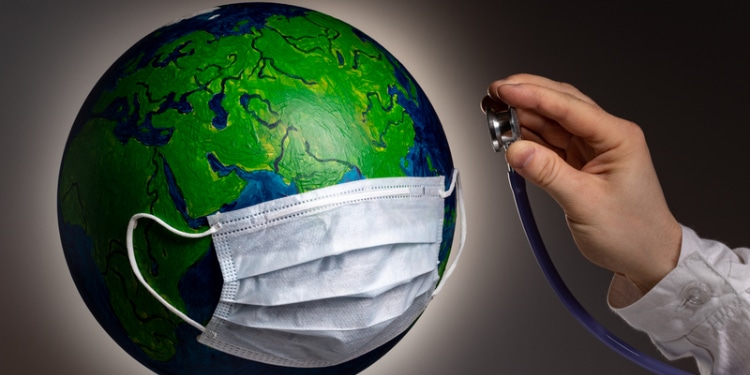









When most people think of trauma, they think of things like domestic violence, sexual abuse, or a serious accident. But trauma is defined as any disturbing or deeply distressing experience. So it shouldn’t be a surprise that many of us experienced some form of trauma associated with COVID-19. In fact, acknowledging the distress and pain that the pandemic caused is part of the healing process. Recognizing the trauma can actually help with adjusting to life after the coronavirus. Taking into consideration all that we have been through since the beginning of 2020 can help to create a path forward.

Eight months ago we had no idea what to expect of the novel coronavirus, even the experts did not know the magnitude of the pandemic. From lost jobs and unemployment to unknown symptoms and thousands of deaths, the mental and physical strain has been incredibly impactful on so many lives. For that reason, many of us have kept our guard up. Whether it’s fearing that we won’t have toilet paper or a job, our survival instincts and emotions have kept us from truly acknowledging how we are really doing.
So as restrictions lessen and we come out on the other side of quarantine, it is time to consider a few things. Ask yourself what are you emotionally and physically prepared to take on? What are you ready to jump back in to? As things start to ramp up again, it is a good time to question if you are ready to go back to life pre-quarantine. Perhaps things have changed for you in a positive way and you learned new things about yourself over the break. Maybe you will take this opportunity to reduce or completely eliminate some activities from your previously busy schedule.
Some people have been ready to get “back to normal” for a while. Even these people need to understand that “normal” is not what it used to be. For example, most business establishments now require a face mask and some restaurants are only allowing takeout and/or outside dining. Being flexible is important right now as there are still so many unknowns, including when there will be a vaccine.
Many others are simply not OK, and they know that. Whether due to financial hardship, fear of loved ones or themselves getting COVID-19, worrying about juggling remote work and childcare, or struggling with new restrictions, these people may need more time readjusting. In order to move forward, some may need the power of self care, including the help of a third party to process their emotions and reactions to life over the last few months. Taking the time to acknowledge your feelings and to recognize the trauma can help you create a game plan for moving forward.
Don’t be afraid to ask for help. A good online counselor can help you get the professional treatment you need to tackle the difficult emotions as you adjust and ease back into life again outside of quarantine. It’s important to seek treatment because you deserve to feel better. The last few months have been long, but the road ahead can be much lighter. Although none of us know what lies ahead, having the support of an online professional therapist can make the challenges we face much easier. You shouldn’t have to face them alone, and you don’t have to.